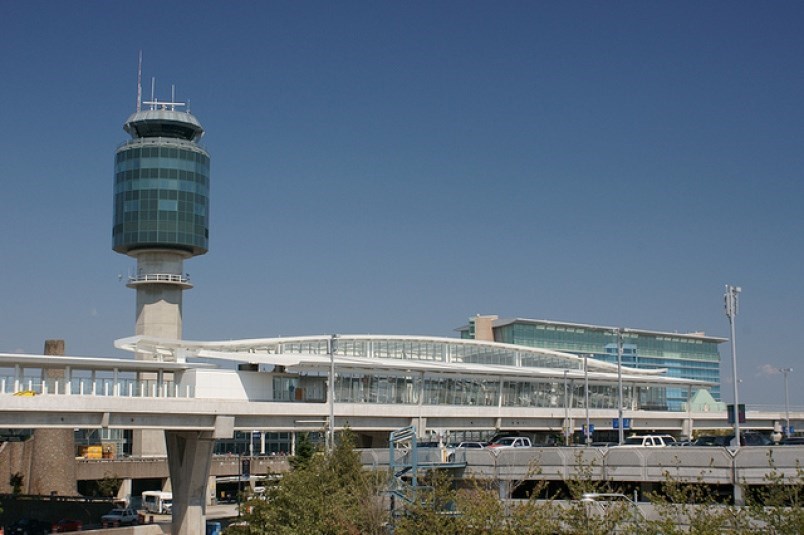Vancouver Airport officials were all smiles this week, after the federal government announced it was slightly easing border restrictions for fully vaccinated travelers at the end of the month.
Gone will be the advisory that warns Canadians to avoid international travel for non-essential reasons and the mandate to have an expensive, time-consuming negative PCR COVID-19 test for re-entry to the country is being replaced by the cheaper and quicker rapid test.
It’s a move that YVR said it is “particularly appreciative” of, given that the changes were announced ahead of spring break – meaning Canadians can now begin to plan their trips.
Currently, YVR said it is seeing about 25,000 passengers daily, but expects to see an uptick over spring break, which is reflected in bookings.
The fact that the federal government is changing its travel advisory may also lead to a “more significant” increase in travel, YVR said.
That’s also what Nancy Small, CEO of Tourism Richmond, is hoping to see with the eased measures – pointing out that, prior to the COVID-19 pandemic, Richmond’s tourism sector relied heavily on international travellers.
“We’re not 100 per cent there yet in terms of full restrictions eased – there’s still testing requirements – but we are definitely on the right road and a very positive road for our industry,” she said.
Domestic travellers will also likely feel more confident with restrictions eased, she added.
While Small said she doesn’t think there will be an “immediate bump” in international travellers, she thinks more people will come into the region in the spring and summer.
As of 12:01 a.m. on Feb. 28, fully vaccinated travellers will no longer need a molecular test – such as a PCR test – to enter Canada. Rather, travellers will have the option of taking a rapid antigen test the day before their scheduled flight or arrival.
The rapid antigen test needs to be approved by the country in which it was purchased and must be administered by a laboratory, health care entity or telehealth service – it cannot be taken at home.
On-arrival testing will also be eased for fully vaccinated travellers. This means that fully vaccinated travellers will be randomly selected for arrival testing and won’t need to quarantine while waiting for their test result.
Unvaccinated travellers will, however, still be required to test on arrival, on day 8, and quarantine for 14 days. Unvaccinated foreign nationals also won’t be allowed to enter Canada unless they meet one of the few exemptions.
The previous testing and quarantine requirements were something that could pose a barrier for international travellers, said Small, given the logistics of planning a trip around those rules.
Another “big deal” for Richmond, said Small, is that B.C. has dropped is capacity restrictions – which paves the way for the return of large conferences and meetings.
That includes a large tourism conference that will hopefully bring around 500 people to Richmond next month, and signal to other industries that Richmond is a good place to host such events.



